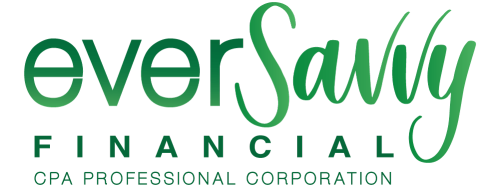As an employee, most think that the only way they can ‘save’ on their taxes is to contribute to an RRSP. However, there are other opportunities to save and benefit!
Below are some tips that may be applicable to you to help maximize your tax savings and benefits.
Tip #1: Allowable Motor Vehicle Expenses
If you are an employee who is ordinarily required to work away from your employer’s workplace (i.e. you often visit clients), and you are required to pay your own vehicle costs in which you don’t receive a tax-free allowance, you can ask your employer to sign a Form T2200, Declaration of Conditions of Employment.

What this does is allows you to take into income the mileage claim you received from your employer (if any), and then DEDUCT the employment portion of your vehicle expenses. Eligible expenses include:
- Eligible leasing costs (if vehicle is leased) or capital cost allowance (if vehicle is owned)
- Fuel
- Insurance
- Maintenance and repairs
- License and registration fees
- Eligible interest you paid on a loan used to purchase the vehicle
The eligible deduction is based on mileage travelled for work as a percentage of total mileage driven.
Tip #2: Work Space in the Home Expenses
With the costs of high rents, a lot of employers are moving towards having their employees work from home. If you are required to work more than 50% of the time from home, for which your employer does not reimburse associated costs, have your employer sign that same T2200 discussed above indicating this requirement. You can deduct the part of the costs that relate to your work space (based on square footage of work space), including:
- Electricity and heating
- Maintenance
- Cleaning costs
- Rent

If you are a commissioned salesperson, then you can deduct even more expenses including property taxes and home insurance. This will be deducted from your income, resulting in less tax to pay. Note that these expenses cannot be used to create a loss from income.
Tip #3: Allowable Moving Expenses
Did your employer relocate you to another office? Are you starting a new job? If you had to relocate to be closer to work, and your new home is at least 40 km closer to your new place of work (in Canada), you may be entitled to claim eligible moving expenses from your income that you earn at your new location.

Some eligible expenses include:
- Cost of selling your old home (which can be quite significant given the current home prices)
- Travel expenses
- Transportation and storage costs
- Lease cancellation fees
- Legal fees and land transfer costs in respect of acquiring a new residence (only if sold old residence)
- The cost of utility disconnections and hookups
These costs are limited to the employment or business income you earned relating to your move; however, they can be carried forward and applied to future employment or business earnings.
Tip #4: Licensing examination fees
If you paid for examination fees to work towards a professional status (recognized by federal or provincial statute), or to be licensed to practice a profession or trade in Canada, you may be eligible for the tuition tax credit.

Eligible fees include examination fees and ancillary fees paid to an institution in respect of the examination. To qualify, the total eligible fees you paid to an institution, including examination fees, must be more than $100.
In addition, tuition is no longer limited to post-secondary courses. If you went back to school to improve your basic reading or math skills, took courses to upgrade your occupational skills, or attended second language classes, your fees may be deductible.
Tip #5 – Other benefits available

There are other benefits that may apply to you, including:
- Canada Child Benefit – this is a tax-free monthly payment made to eligible families to help them with the cost of raising children under the age of 18.
- Child care expenses – if your kids attend daycare or a child care program, you or your spouse may be able to claim what was spent on your tax return. However, child care expenses have an annual limit per child, which means the full payment may not qualify for a deduction.
- Working income tax benefit – if you are a working family or individual with a low income, you may be eligible for this refundable tax credit.
- Child disability benefit – you might be eligible for this tax-free benefit if you care for a child under the age of 18 who is eligible for the disability tax credit.
- GST/HST credit – this is a tax-free quarterly payment that helps individuals or families within a certain income level.
~ EverSavvy Financial


Recent Comments